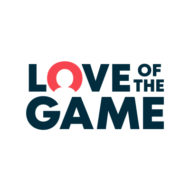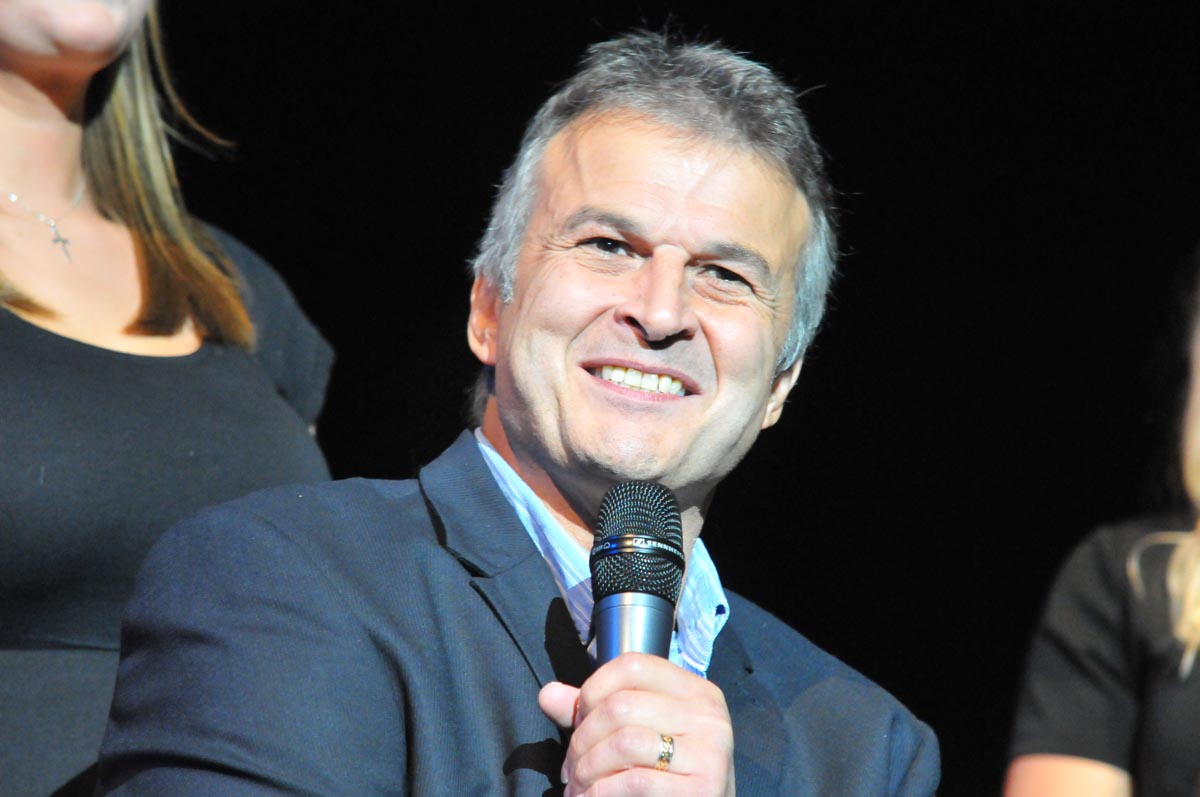- Samson Rising documents your life, the roller-coaster of growing up on a tough Council Estate in Cornwall and your discovery of sport, through to your life-altering MS diagnosis and establishing a bespoke MS therapy centre in Surrey. What inspired you to share your story and what do you hope your readers take away from it?
Spending hours and hours in a chamber receiving oxygen therapy gives you time to think and reflect. I never set out to write a book. Instead, I would just jot down a few chapters as a form of therapy. It was a conversation with my cousin, who works in life coaching, that planted the seed that this could be the beginnings of a book.
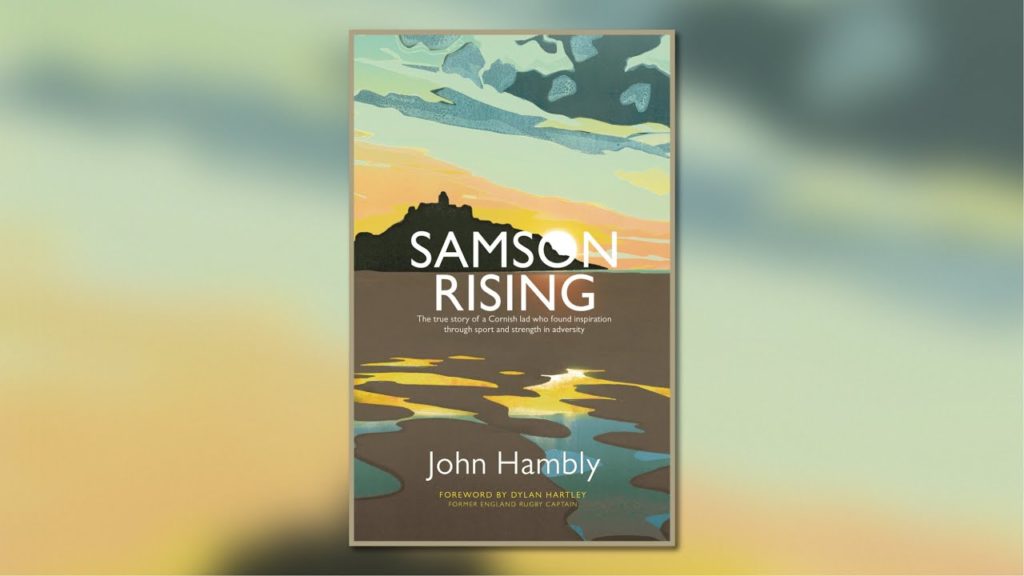
I’m no philosopher but there are certainly a few things I’ve learned along the way that I hope might bring comfort and maybe provide a little inspiration to others. By always being open to new ideas, trusting my gut feeling and being receptive to new opportunities and challenges, I have been lucky enough to be involved in extraordinary initiatives and teams, meet incredible people and, with the support of others, play a small part in improving the quality of life for other MS sufferers like me.
Samson Rising charts the series of events, decisions and phases that have molded me into who I am. As I mention in the book, for me, life has been like a game of dot to dot and now that process has led me to where I am today as part of the Love of the Game team.
- The communal spirit of sport is a theme throughout Samson Rising. How has your experience being a fan, a player, a Captain and a club leader helped you tackle the challenges and embrace the opportunities that life brings?
Having spent my childhood under the protective wing of my mother and at the hands of bullies at school, the discovery of sport gave me the confidence to stand up for myself and I found joy and the exhilaration that comes from being part of a team.
Little did I know then that this team spirit and network of friends, whether from the Truro Trout & Freshwater Fishing Club or as Captain of Actonians RFC in West London, would be my constant source of support, fun and hijinks for years to come.
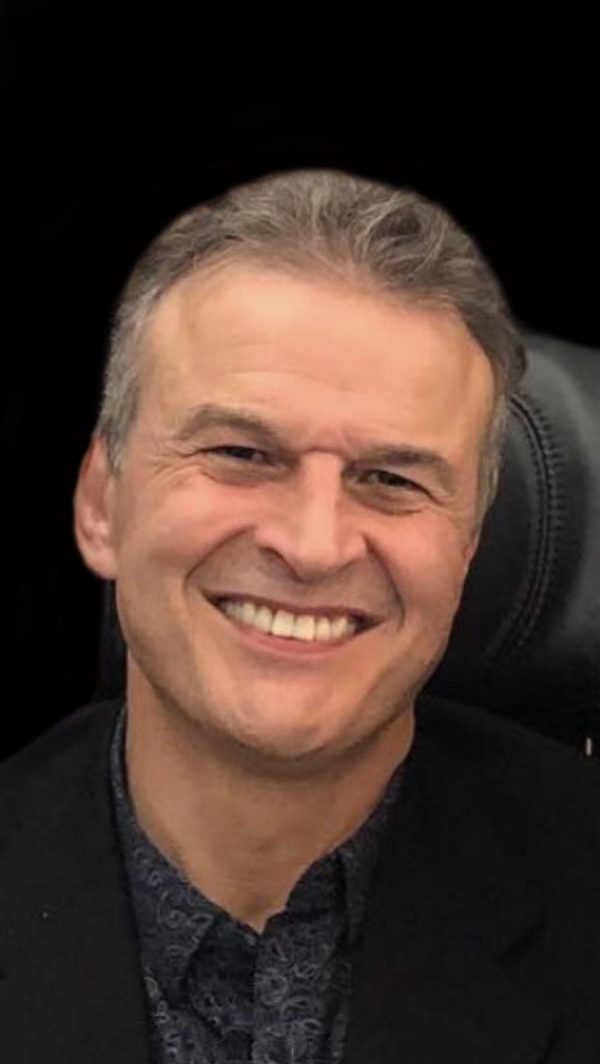
Rugby taught me the importance of focus, integrity and unity and these have been transferable to all areas of my life – in business, charity work and with my family. Most importantly, it has taught me to stay in the fight and hang on in there, no matter what life throws at you. When anyone asks me how I get through the hardest points of my MS, it’s about remaining mentally strong and relentlessly focused on the positive.
- From overcoming childhood bullying and low self-esteem to building a successful career, undertaking ambitious fundraising projects and defying the odds to build the Samson Centre for the benefit of fellow ‘MS-ers’, the value of self-confidence and friendship shine throughout Samson Rising. What lessons have you learned along the way and would offer to the LOTG community?
“From little acorns mighty oaks grow”. There is no greater lesson that I can share. I have always tried to listen to the opinions and ideas of others, without preconceptions or judgement.
The Samson Centre started as an idea that niggled at me after I joined an MS support group in my local village hall. Despite the seemingly insurmountable fundraising targets and organisational demands, whilst dealing with my own health challenges, if you take it step-by-step, tackle it as part of a team and remain focused on your goal, the impossible suddenly becomes possible.
It is thanks to being open to opportunities and new challenges that I became part of Love of The Game and am now a member of a new team united by our passion for sport and mission to reduce the long-term impacts of concussion.
- You describe your MS as a ‘medical wrecking ball’, ‘impinging on every aspect of family life, work, rest and play.’ The long-term, debilitative effects of concussion and its close ties to dementia are becoming increasingly clear. What advice would you share with fellow sportsmen and women dealing with such life-altering diagnoses?
It is important to give yourself time. I fought against my diagnosis for a few years, pushing myself to get fitter and refusing to slow down. In the end I learned that I had to fight this battle in a new way.
My way of dealing with it has always been to be open, level with people and not be frightened to talk and answer questions. This is why at the Samson Centre, after every treatment or class, we come together and talk about our diagnoses, treatment and how we’re feeling without any fear of embarrassment.
There has been a real shift in the last year or so as more sports men and women have spoken openly about their physical and mental health challenges. Joe Marler’s documentary, ‘Big Boys Don’t Cry’ is a fantastic example. As he says, ‘you can be vulnerable and talk about your struggles and be strong’.
I firmly believe a problem shared is a problem halved and for those living with life-altering illnesses I hope the book makes them see that they are not alone, and that life can continue in a positive and fulfilling way. Your world doesn’t need to shrink after your diagnosis.
- You describe the discovery, use and transformative effects of baric oxygen therapy in Samson Rising. How can it be applied to treat the effects of concussion and how could it be included in a sport person’s training/recovery regime?
There is no doubt in my mind that oxygen therapy is a game changer. It has been transformative for me and continues to improve the quality of life for people that come to the Samson Centre who are living with MS and receiving treatments for other illnesses including cancer. We’ve also treated world-class sportsmen like Andy Murray and Novak Djokovic along with many professional rugby and football players recovering from injury.
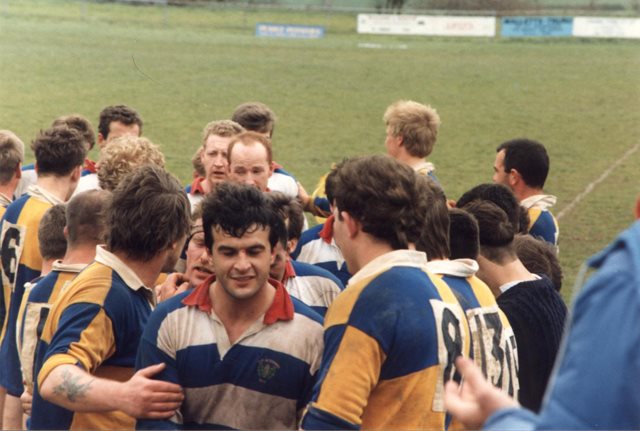
I believe that what we have created at the Samson Centre and the MS network as a whole is just the beginning of great things to come. We can see from countries like Japan, the USA and Canada that oxygen therapy has the potential to become integral to the treatment of concussion.
However, the UK has a long way to go to catch up and offer the same level of care to our sports people at all levels. As the rate of injury in contact sports continues to increase and the long-term impact and links to dementia become clear, the urgency increases. LOTG has an important role to play.
- Finally, as we know there are a lot of rugby fans within the LOTG community, what are your thoughts on the Lions team selection and prediction for the upcoming tour?
Well, much like everyone in the Northern Hemisphere, I am hoping the Lions will win! Given the physical presence of the Springboks, I think Warren Gatland has been wise to select a balanced squad of players with physicality, speed and creativity.
With the benefit of the four Home Union players having more recent game time under their belts, I think we’ll take the series 2-1 with the likelihood that South Africa will play their way into form by the 3rd Test. We’ll have to wait and see!
Samson Rising by John Hambly, published via United Writers at £18.95, is available to purchase via Amazon, Waterstones, United Writers and in all good bookstores. £1 from every copy sold will be donated to the Samson Centre where it will go to fund life changing treatments.
